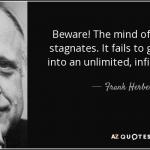This is another blog post that existed as a draft for a long time. The earlier links that I placed in the draft were mostly about the Gospel of Mark, with several of them focusing on recent books about reading that text in context. The Zondervan blog had a post about one such book, and the Hendrickson blog had a post about another. I hope to get the chance to review the latter book at some point, and had already been meaning to review the former, and so decided to take the opportunity to do so now.
The book in question is Reading Mark in Context, and it is part of a series whose volumes all do something similar with the individual writings included in the New Testament that they focus on: relate them, section by section, to a particular other second temple Jewish text that either addresses the same theme or contemporary concern, interprets the same passage from the Jewish scriptures, or in another way show themselves to be connected and relevant to one another, sharing similarities as well as differences. The texts that are brought in in each of the book’s 30 chapters include various Dead Sea Scrolls, 1 Enoch, Josephus, 4 Ezra, the Mishnah, the Talmud, Psalms of Solomon, Testament of Solomon, Testament of the Twelve Patriarchs, Philo, Tobit, Sirach, Jubilees, and Letter of Aristeas. The themes covered range across messianic ideas, interpretation and application of Torah, exorcism, purity, ethnicity, and much else. The chapters include charts that summarize key points about the relationship between the two texts, each of which is presented in turn. Each chapter concludes with recommended further reading in primary sources other than those which are the focus of the chapter, where to find editions of the text outside the New Testament that is highlighted in the chapter, as well as secondary resources written by scholars. This is obviously an important book for those studying the Gospel of Mark, the historical Jesus, and/or ancient Judaism, and the entire series is likely to prove equally valuable for those working on other texts.
The Dunelm Road blog offered posts about reading Mark in context, whether we have enough information to read Mark in context, and why we need to strive to do so nonetheless. They also presented the case for this kind of historical study of the New Testament more generally.
Larry Hurtado blogged about Mark in its Jewish context, Pete Enns offered five key points about Mark, Nijay Gupta wrote about anti-imperial polemic in Mark, and Christian Piatt wrote about Mark’s controversial message of religious and political defiance.
The spur to finish this post, in case you are wondering, was Steve Black’s post about the impression that the Gospel of Mark conveys about Jesus when it is read on its own terms. If we do that, Black argues, we would understand Jesus to be a fallible human being like ourselves who thus undergoes a baptism of repentance for the forgivemess of sins. A further corollary of this is that Jesus is not divine in Mark’s portrait. Do you agree? Read the entire post on the Broken Oracles blog and then let me know what you think. (You may also be interested in what Dale Tuggy has been writing and saying about this topic.)
Of related interest, Candida Moss explored whether the Gospels are finished works (Mark being the one that looks least like it was finished among those in the New Testament), Mike Bird offered a brief review of David Wenham’s recent book about the Gospels, and there was also interesting discussion that got this post started when I talked about Mark inventing the “Sea of Galilee” – the name, not the actual body of water.
I hope to explore more details about the view of Jesus found in Mark, and a key element of Paul’s theology, in another blog post. For today, though, hopefully the above has given you more than enough to think and talk about!














